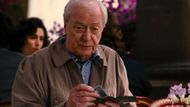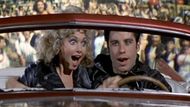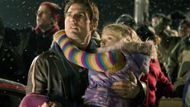Ends are all particularly in movies. They bring the narrative together, provide emotional resolution, and usually leave the viewers with that indelible last image. A perfect end can make an entire film, whereas one miscalculation in the last few minutes can undo hours of investment. Some films almost do everything right except those last scenes that seem misplaced, overdone, or simply unnecessary. Whether it's a dissonant change of tone, a plot twist that ruins the message of the story, or an unrequested, forced happy ending that no one requested, these conclusions have audiences wondering why the directors couldn't have just left well enough alone.
Over the past few years, fans have been more outspoken than ever about what constitutes a satisfying movie ending. Social media websites such as Reddit, X (formerly Twitter), and Letterboxd are swarming with arguments over endings that could have been chopped or entirely reworked. With fan theories, director interviews, and behind-the-scenes facts emerging years after the films' release, some of these pointless conclusions have gained new life and controversy.
In this piece, we revisit seven films that had all the breaks… until they didn't. From flying cars to maudlin excess, these finales show us that sometimes less is more and a fade to black would have been the intelligent decision.
Movie endings that felt completely unnecessary
1. I Am Legend (2007) – Theatrical Ending

The Hollywood conclusion to I Am Legend created huge controversy for erasing the moral grayness that made the original tale so haunting. Rather than respecting the intelligence and humanity of the creatures, the film demonized them as monsters, reducing Neville to a classic hero. Ironically, the alternative ending found in the 2021 re-release talks better reflected the book's theme: Neville discovering he is now the monster in a new world. The unnecessary bloodshed in the theatrical cut overlooked this richness, bringing down the conclusion to an empty action payoff. Die-hards continue to argue over which incarnation really deserved a release on the big screen. Most concur: not the theatrical version.
2. The Dark Knight Rises (2012) – Café Scene

Christopher Nolan's The Dark Knight Rises had every indication of being a poetic, open-ended conclusion until the Florence café scene spelled it out too literally. Alfred's witnessing Bruce alive was a convenient bow that deprived the trilogy of its heavy, sacrificial resolution. Even so, some suggest it's an imagining in Alfred's mind, but the framing of the film heavily suggests otherwise, undercutting Batman's mythical selflessness. Nolan, infamous for open-to-interpretation storytelling, caught fans off guard with this spoon-fed finale. Over the past few years, fans on Reddit and Letterboxd have pressed to interpret the café moment symbolically, possibly meaning the true ending is Bruce's demise.
3. A.I. Artificial Intelligence (2001) – Alien Epilogue

A.I. was supposed to end with David stuck in a submerged Manhattan forever, summoning Kubrick's characteristic bleakness. Yet Spielberg's decision to add on an eponymous far-future epilogue where evolved beings grant David one day to spend with his mother again was emotionally imposed and tonally dissonant. Misidentified as aliens, these "mecha-evolved" creatures perplexed viewers and pitched the movie into unwonted sentimentality. A 2024 look back by The Atlantic reexamined how the conclusion conflicted with the rest of the film's nihilism. Spielberg has explained the decision as "a gift for David," but most think the initial, darker ending would've maintained the story's brilliant tragedy.
4. The Lord of the Rings: The Return of the King (2003) – Multiple Endings

Winning 11 Oscars could not shield Return of the King from one typical criticism: the unrelenting succession of endings. Just as everyone believed it was finished, cue another fade-out and a tearful farewell. Although Tolkien's literary ending is likewise expansive, the on-screen adaptation tried patience. Even Elijah Wood made light of it during a 2023 Actors on Actors interview when he referred to it as "the movie that wouldn't end." Peter Jackson's dedication to completion was commendable, but the repetition diminished the ultimate emotional impact. With every farewell, the effect grew weaker. At times, less is more, even with regard to saying goodbye to Middle-earth.
5. Grease (1978) – Flying Car Finale

Forty-five years on, Grease's flying car remains baffling to its fans. Following a down-to-earth, sentimental romance, Danny and Sandy flying into the skies was against all reason. Was it fantasy? A dream? A joke? In 2023, the director of the movie, Randal Kleiser, only now acknowledged the ending was "a nod to 1950s B-movie escapism," yet it continues to puzzle many. TikTok fan theories went wild last year, positing that Sandy was dead the entire time, further propelling the mystery. Metaphorical or accidental nonsense or not, the conclusion reads like a sore thumb in an otherwise tidy musical romp.
6. War of the Worlds (2005) – Miraculously Alive Family

Spielberg's War of the Worlds creates heart-stopping suspense, then resolves with a strangely undamaged Boston and a snugly safe family. After witnessing cities being incinerated and millions of people vaporized, audiences were amazed when Rachel and Robbie's grandparents simply opened the door. It seemed like an emotional bailout against the unflinching anarchy of the film. 2024 critics brought the film back in the context of COVID-era survival films and maintained that the optimistic twist might be a subconscious desire for stability. Still, most concede it undermined the fear and the realism that made the invasion seem so frightening in the beginning to begin with.
7. Wonder Woman 1984 (2020) – Overdrawn Final Goodbye

In Wonder Woman 1984, Steve Trevor's return was controversial enough, yet the extended goodbye weighed down on the movie's pace. Following a wish-granted plot that split audiences, Diana's tearful goodbye to Steve was déjà vu from the first movie, minus the brevity and emotion. Gal Gadot and Patty Jenkins justified the scene, describing it as a "mirror of sorrow," but critics said the over-sentimentality was at odds with the hasty climax. A 2024 Vulture review dubbed it "a breakup scene stuck in slow motion." Rather than conclude on strength and determination, the film mired itself in repetition, undermining the trajectory of an otherwise formidable heroine.
Movie conclusions can redo all that precedes them either positively or negatively. Although the movies here are not necessarily bad, the last scene disappointed, confused, or frustrated a majority of their viewers. Sometimes, it is not tying up loose ends but rather knowing when to stop. These gratuitous endings serve to remind us that storytelling isn't merely about beginning and middle; it's about honoring the emotional and narrative reward that audiences are owed. Whatever these decisions were made for - studio requirements, fan expectations, or plain ambition - the one thing is certain: a wonderful film can still fail on its last gasp.
Love movies? Try our Box Office Game and Movie Grid Game to test your film knowledge and have some fun!
